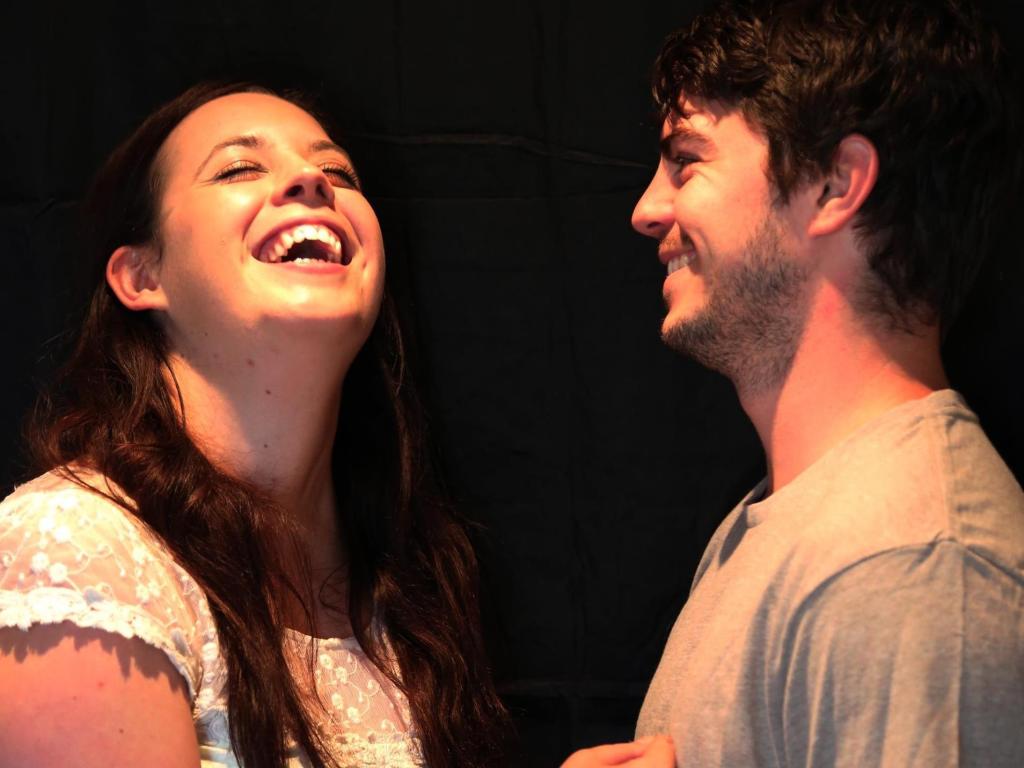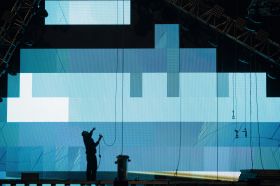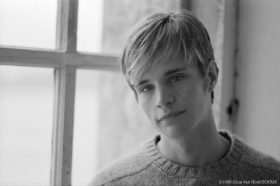Following the relationship of two characters, Lucy and Max, as they meet, fall in love then fall apart, Wonderland is described as a realistic story in a fantastical setting. Accompanied by the music of Kevin MacLeod and on a stage decorated with sculptures by Andrew Grenfall, the play opens with two characters sitting opposite each other, facing the audience as they discuss what’s clearly the end of their relationship. Then, it flashes back to the beginning.
Lucy and Max appear to have met at a bus stop. They describe their relationship as fairytale-like; they go on dates to watch the stars and fall into bed in a choreographed sex scene accompanied by slightly foreboding music. Quickly, the cracks begin to show; Lucy goes out with her friends too much, while Max is jealous. Arguments start; he tries to solve things with a diamond ring, then there are more arguments and strained discussions where they wonder if the fairytale really doesn’t exist. It doesn’t.
If it all sounds banal, it’s because it is. Walking into the Reginald theatre, the sparse audience are met with the stunningly designed set and Tim Burton-esque musical score, apparently readying us for a fairytale re-telling. It’s a huge credit to the talented Grenfall.
Then the actors open their mouths.
Their relationship isn’t believable, the dialogue is strained and unnatural and frankly, there’s no evidence of the fairytale that they both emphasise. The relationship has all of the feel of dramatised teenage-angst; without the characters divulging any specifics of either the good points or problems, we’re left with a series of cliches and dull observations on how real relationships take work. The characters themselves are hugely stereotyped, down to the moment when the friendless, jealous Max, who earlier tells us of his abusive father, grabs at Lucy to stop her from leaving.
While it’s often easy to blame poor performance on bad dialogue or direction, both of the actors are lacklustre here, although Alexandra Howard should surely take more of the blame for this as both the writer and co-director as well as playing the role of Lucy. One wonders when watching Wonderland what her directing partner Kate Clark actually has to do. The storytelling method is obviously meant to ensure audience sympathy for both protagonists; an impossible feat when both are so unlikeable. The story isn’t helped by the fact that it’s difficult to tell how much time had passed between incidents, while the lighting design seems poorly rehearsed.
Fairytale re-tellings have become increasingly more popular in books, films and theatre over recent years. Some are extremely clever, often containing a deeper meaning or lending an original, adult spin to a well- known story. Unfortunately, Wonderland does none of these.
Rating: 1 ½ out of 5 stars
Wonderland
Lexx Productions
Written by Alexandra Howard
Directed by Alexandra Howard & Kate Clark
Stage Manager: Kate Clark
Lighting Designer: Huon Manningdale
Sound Technician: Jonathon Ashcroft
Set Design: Andrew Grenfell
Crew: Richard Fear
With: Alexandra Howard, Samuel Doyle
Reginald Theatre, Seymour Centre, Chippendale
www.seymourcentre.com
8 – 12 April





